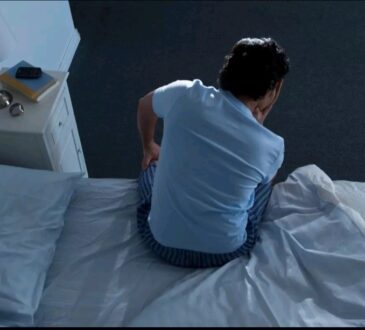“I Didn’t Want to Die. Tears Rolled Down My Cheeks as the Fear Consumed Me”: Woman Who Battled Anxiety, Anorexia & Addiction Finds Hope and Healing
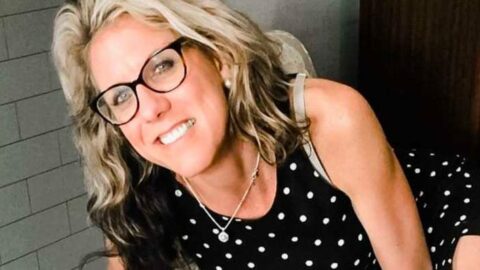
As I moved from room to room of my childhood home, the pictures my Mom had scattered on the shelves and walls over the years caught my attention in a way they never had. There were photos of me in youth sports, school pictures, my senior portraits, and decades worth of family celebrations and vacations – all of which I had seen thousands of times. But, for some reason, on this particular day, I noticed something very different about them. Something was missing.
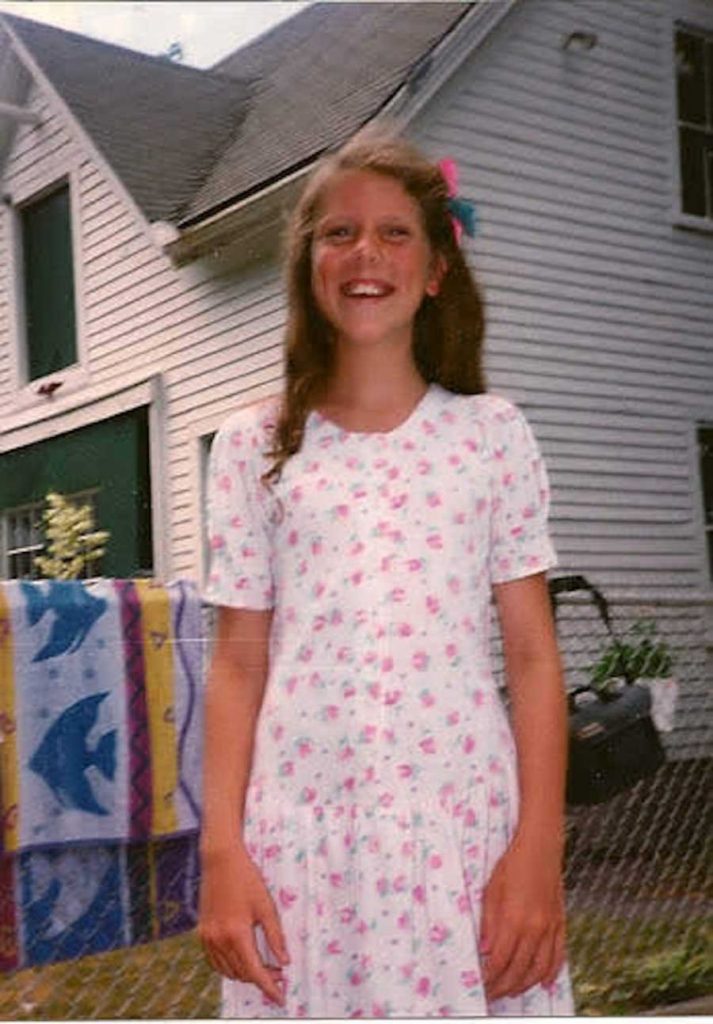
Before I get to what that was, allow me to take you back to the very beginning…
I grew up the second oldest of five children in a loud, traditional, Irish Catholic family. My parents believed strongly in praying, playing, and eating together. It was the glue that, despite hard times, kept us a unit. In our household, there was never a shortage of love, opinions, hands, or commotion.
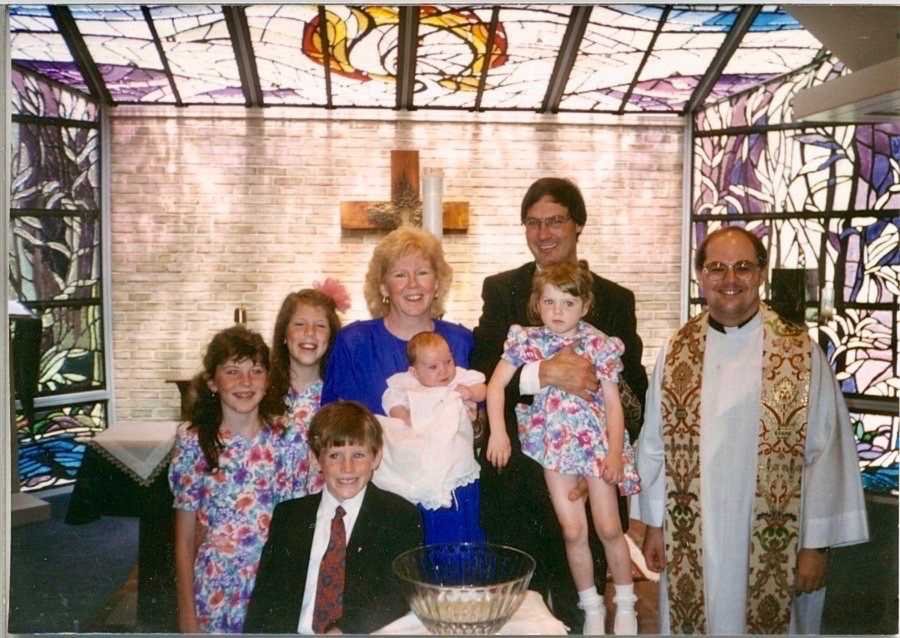
But, being a highly sensitive, introverted, middle child, I experienced everything around me in an exaggerated way. My thoughts and feelings contained an innate intensity that, as a young girl, I didn’t know how to turn off. I felt anxious in a room of noise, scared of confrontation, exhausted by emotional stimulation, and overwhelmed by social situations. Most of my family members were extroverted and didn’t seem to be rattled by the things and situations that left me feeling distressed, frightened, and unsafe.
As a result, the belief that ‘something was wrong with me’ cemented itself as the foundation of my very impressionable psyche. This manifested into full-blown anxiety by the time I was six years old. I would beg and plead with my parents to not make me leave the house or be forced to do something like a sleepover at a friend’s house or go to swimming lessons. I felt different. But I didn’t want to be different. I wanted to be like them. I so desperately wanted to feel like I ‘fit-in.’ And so, my disappearing act was born.
My initial mode of escape showed up as perfectionism. Growing up, my grades and behavior were as pristine as they could possibly be. I was the quintessential ‘good girl,’ determined to be the child every parent was proud of and the student every teacher wanted in her class. It was my way of compensating for the fact that I was seemingly ‘different.’
‘If I can be what everyone wants me to be, then they will have no choice but to love me!’ I thought as I projected my self-rejection onto others at this early age.
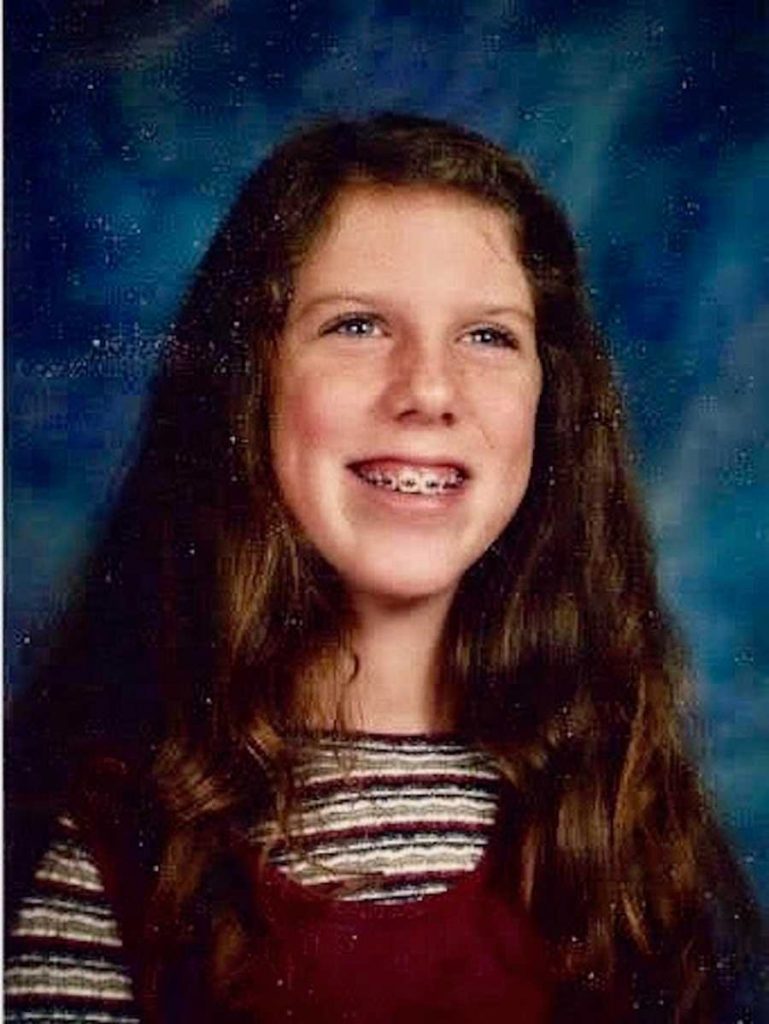
Throughout my grade school and middle school years, I was tormented by fear and paralyzed by anxious thoughts. I carried enormous amounts of shame over being human, and my inability to achieve true perfection. Furthermore, I was by far the tallest girl in my class. I towered over most of the kids. In every school picture, I was in the back row with all the boys. This aspect of my physicality added fuel to ‘the way I was made must be wrong’ belief that ferociously burned a fire within me.
One day, at the beginning of my eighth-grade year, my desire to disappear took an ugly turn. My best friend was on a diet at the time, and I had become increasingly curious about trying it. So, while eating lunch, I gave my Little Debbie dessert away, and from that moment nothing was ever the same. I very quickly discovered, the less and less I ate, the more my BIG, intense feelings and incessant thoughts went away. It was a lot easier to feel hunger than it was to feel shame. And so, I became transfixed with the scale. In my little distorted brain, starvation was the perfect way to escape myself. My disappearing act was officially in full swing.
‘You’re not leaving this table until you finish what is on your plate! Do you hear me?’ My parents begged, pleaded, and demanded me to eat. But my disease was much bigger than they were. After every possible attempt to intercept my destructive behavior had been exhausted, at 5’11” and 86 pounds, I was admitted to an inpatient eating disorder unit at a hospital away from my school, my family, my friends — everything I knew as home.
I will never forget the absolute horror of having to be pried off of my parents that day, not knowing when I would see them again. I walked into the unit, which was connected to the psych ward, having just turned 14 mere days earlier, and saw the plethora of other sick people. ‘But I’m not like them!‘ I thought to myself fearfully. At that moment, I felt like I had officially walked through the gates of hell.
Things got a lot worse before they got better. There were many days I spent sitting at the dining tables, staring out the hospital window with absolutely no hope. My obsession with losing weight, ‘disappearing,’ completely owned me. It controlled my thoughts, my actions, my entire being. I would hide food, disobey the nurses, pour supplements in my shoes; there was nothing I wasn’t willing to do if I thought it would make the scale go down. Furthermore, I was prohibited from calling or having any visitors when I lost weight. But not even that threat was enough to persuade me into making good, healthy decisions. I was in deep.
‘Nothing changes if nothing changes,’ my dad said to me one evening, as he drove me to an outpatient therapy session. Something about his words that night clicked. I saw the pain that my disease was causing and wanted for it to stop. It was a long, hard road to recovery and one that certainly didn’t come overnight. But little by little, step by step, with a whole lot of love, prayer, and support, I got well. While disappearing may have been my plan at that time, it was clear that it wasn’t someone else’s.
In high school, it was the first time I felt like I finally belonged. I excelled in academics and athletics and had a group of friends who loved and accepted me, exactly the way I was. I embraced the aspects of myself I had previously abandoned. Every day wasn’t perfect, but I was happy. So, when it came time to head off to college, I felt a huge amount of resistance. I had three solid years in recovery, only to feel like I had to start from scratch somewhere completely foreign.
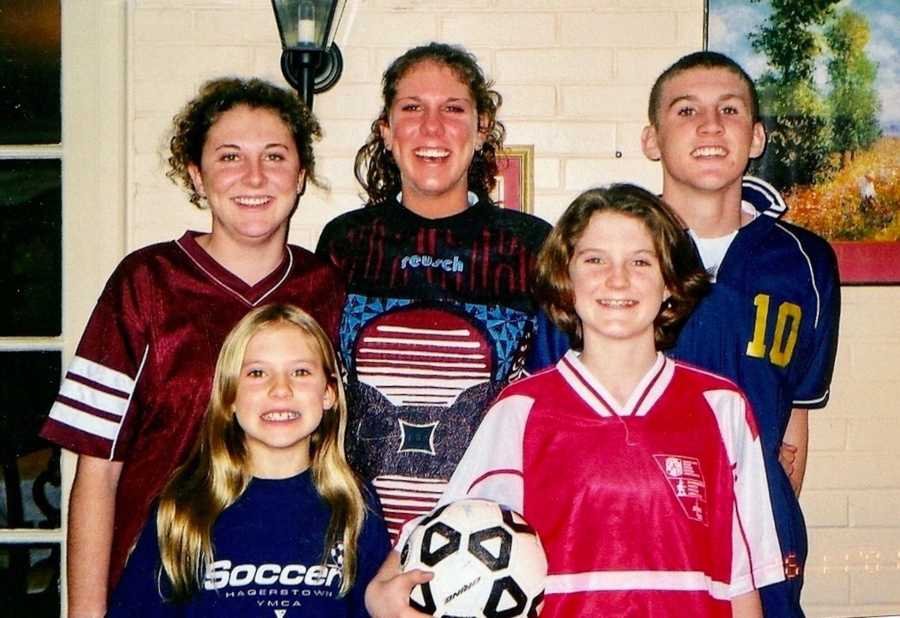
As a freshman in college, it didn’t take long for the overwhelming desire to disappear to show back up. I was scared. Naive. Insecure. The familiar excruciating pain of feeling different consumed me. I was mocked for my height since, at 6’1”, I surely didn’t look like the typical sorority girl. I longed for a safety that I couldn’t find being myself. Not wanting to tell anyone what was going on inside, out of my own shame, I turned to the one sure way that I knew would make the pain I was in go away – losing weight. And so, I relapsed.
My family, unable to deny what was happening, soon intervened. At the conclusion of the first semester of my sophomore year, I was forced to withdraw.
Over the next few months, with significant family involvement, I arrived at a mentally stable enough place that I was able to transfer to a college I loved. But I refused to get the proper treatment I needed because I was unwilling to address the root cause of my behavior: my own self-hatred. Frankly, I was afraid of someone taking it from me. It was what I knew I could count on to escape. I was determined to protect it. Therefore, my pain was simply band-aided, not remedied. And I proceeded to shuffle symptoms.

